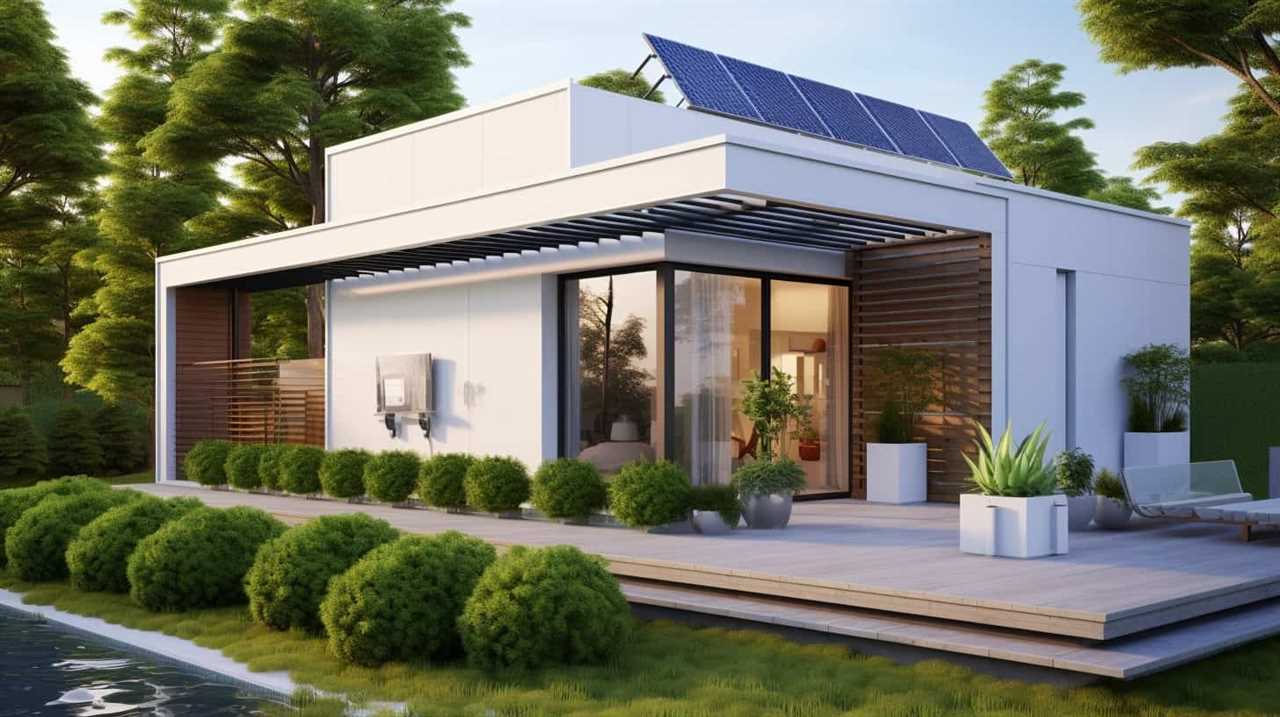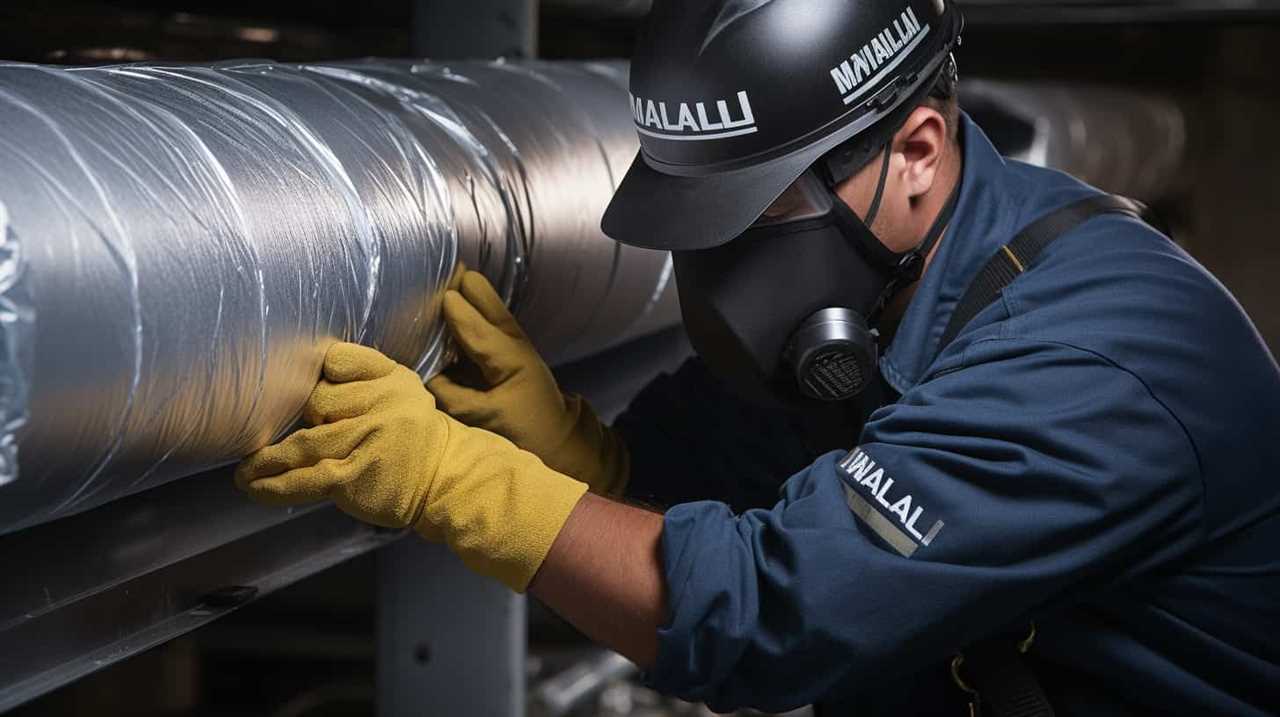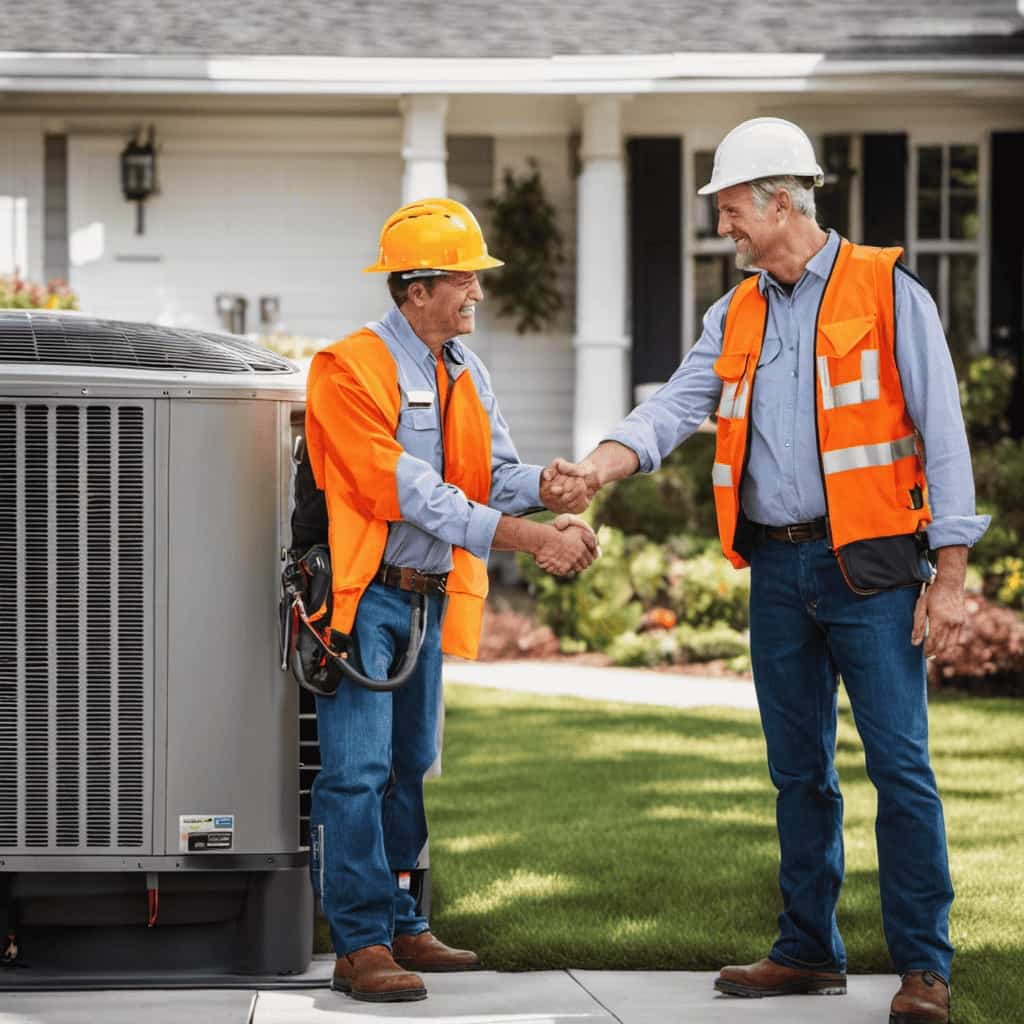Looking for a way to make your home more eco-friendly? Heat pumps are the answer! They offer a multitude of advantages, from energy efficiency to cost savings and improved indoor air quality.
With their versatility and flexibility, heat pumps are a smart choice for any eco-conscious homeowner. Join us as we explore the top benefits of heat pumps in our quest for a more sustainable and comfortable living environment.
Key Takeaways
- Energy Efficiency and Cost Savings: Heat pumps are highly efficient systems that extract heat from the air or ground, resulting in energy savings. They reduce reliance on fossil fuels, lower carbon emissions, and contribute to a more sustainable future. Homeowners can save up to $700 per year in energy costs compared to other systems, making heat pumps a smart choice for eco-friendly homes.
- Environmental Sustainability: Heat pumps utilize renewable energy sources and produce fewer greenhouse gas emissions compared to traditional systems. Their high energy efficiency leads to significant energy savings, and their longer lifespan reduces the need for replacements, resulting in less waste. Heat pumps promote a greener alternative for heating and cooling, contributing to a more sustainable future.
- Versatility and Flexibility: Heat pumps provide both heating and cooling functions, and they offer smart control features for easy adjustment of settings and energy monitoring. They efficiently maintain comfortable indoor temperatures throughout the year and operate quietly, ensuring a peaceful environment. Heat pumps can be installed in various spaces, making them adaptable to different areas of eco-friendly homes.
- Improved Indoor Air Quality: Heat pumps help purify the air by capturing dust, pollen, and other airborne particles. They reduce the presence of allergens, improve ventilation, and maintain optimal humidity levels, preventing the growth of mold and mildew. Heat pumps contribute to a healthier living environment for eco-friendly homes, benefiting those with allergies and reducing respiratory issues.
Energy Efficiency
When it comes to energy efficiency, heat pumps offer significant advantages for eco-friendly homes. Heat pumps are highly efficient systems that can provide both heating and cooling, making them a versatile choice for homeowners. One of the main benefits of heat pumps is their ability to extract heat from the air or ground, resulting in energy savings compared to traditional heating and cooling systems. By utilizing renewable energy sources such as the air or ground, heat pumps reduce reliance on fossil fuels and contribute to a more sustainable future. This not only helps to reduce carbon emissions but also lowers utility bills.
With their high efficiency and use of renewable energy, heat pumps are an excellent choice for eco-conscious homeowners looking to maximize energy savings.
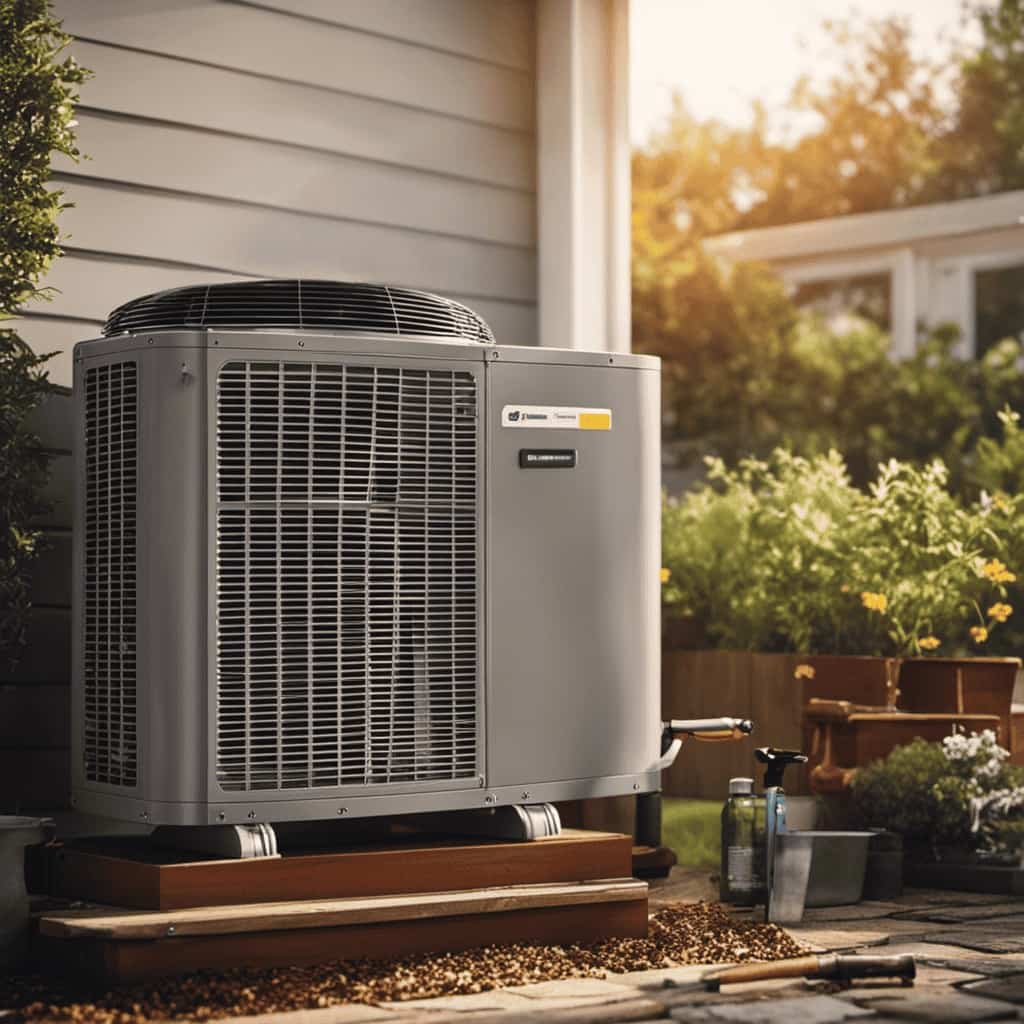
Transitioning into the subsequent section about ‘cost savings’, heat pumps not only provide energy efficiency but also offer significant financial benefits.
Cost Savings
One of the top advantages of heat pumps is that they can lead to significant cost savings for homeowners. By utilizing renewable energy sources, heat pumps are highly efficient in their energy consumption, resulting in lower utility bills. Additionally, heat pumps are a long-term investment, as they have a longer lifespan compared to traditional heating and cooling systems. This means that homeowners can enjoy the cost savings for many years to come.
To provide a visual representation of the potential cost savings, the table below compares the average annual energy costs of a heat pump with other heating and cooling systems:
| System Type | Average Annual Energy Costs |
|---|---|
| Heat Pump | $800 |
| Furnace and A/C | $1,500 |
| Electric Resistance | $2,000 |
As shown, heat pumps can save homeowners up to $700 per year in energy costs compared to other systems. This significant cost reduction makes heat pumps a smart choice for eco-friendly homes looking to save money in the long run.
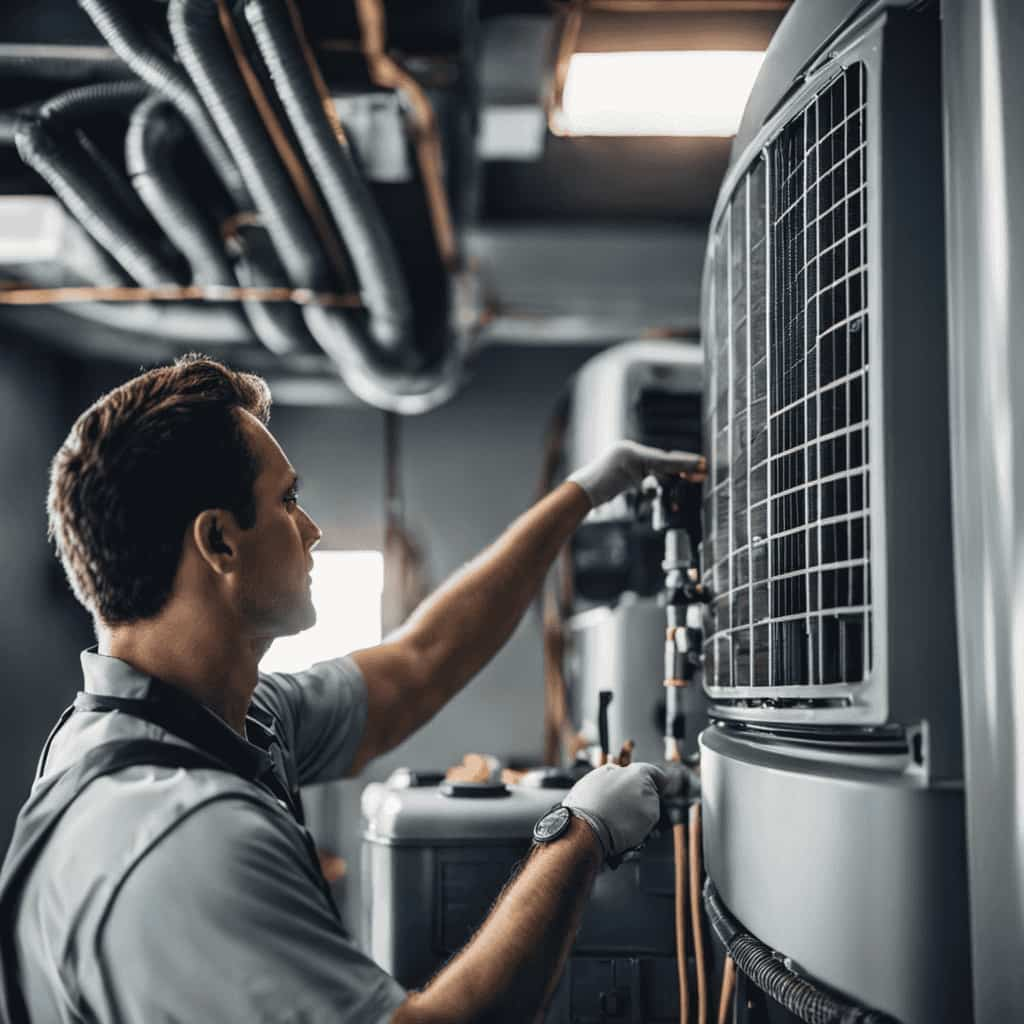
Environmental Sustainability
Our focus is on the environmental sustainability of heat pumps, as they provide a greener alternative for heating and cooling homes. Here are four reasons why heat pumps contribute to a more sustainable future:
-
Renewable Energy Sources: Heat pumps utilize renewable energy sources, such as air, water, and geothermal heat, to provide heating and cooling. By relying on these sources, heat pumps reduce our dependence on fossil fuels and contribute to a more sustainable energy system.
-
Reducing Carbon Footprint: Heat pumps produce fewer greenhouse gas emissions compared to traditional heating and cooling systems. They operate by transferring heat rather than generating it, resulting in lower carbon emissions and a reduced impact on climate change.
-
Energy Efficiency: Heat pumps are highly efficient in converting energy into heat or cooling. They can achieve high levels of efficiency, leading to significant energy savings and reduced environmental impact.
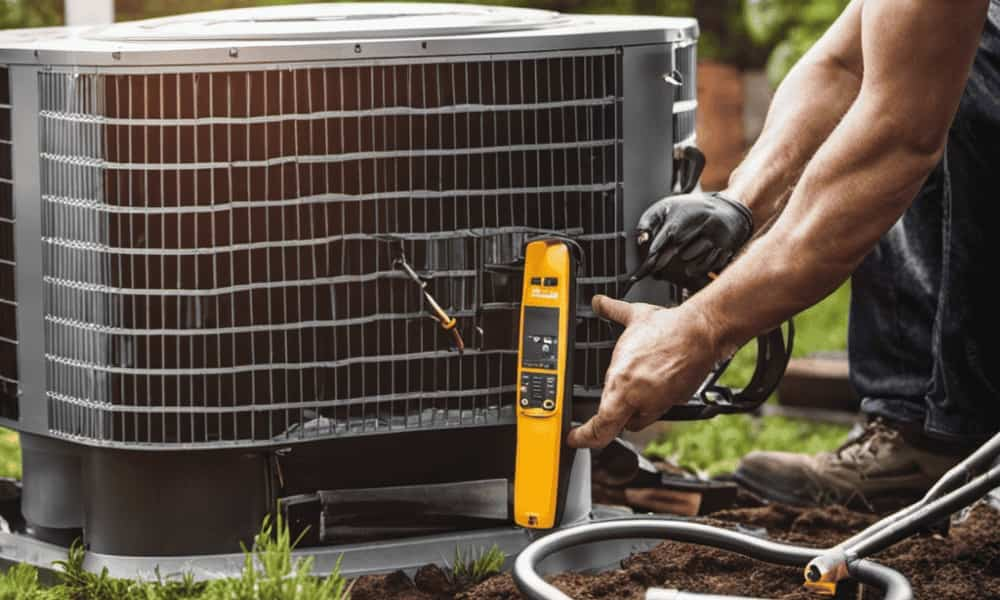
-
Long Lifespan: Heat pumps have a longer lifespan compared to conventional heating and cooling systems. This means fewer resources are needed for replacements, resulting in less waste and a reduced environmental footprint.
Versatility and Flexibility
Heat pumps offer homeowners a wide range of options and adaptability when it comes to heating and cooling their homes. Not only are they capable of providing both heating and cooling functions, but they also offer smart control features that allow users to easily adjust settings and monitor energy consumption. This versatility makes heat pumps a great choice for eco-friendly homes, as they can efficiently maintain comfortable indoor temperatures throughout the year. Additionally, heat pumps are designed to operate quietly, ensuring a peaceful and noise-free environment. This is especially beneficial for those who value tranquility and desire intimacy in their homes. The table below highlights the key advantages of heat pumps in terms of smart control and noise reduction.
| Advantages of Heat Pumps |
|---|
| Smart Control |
| Noise Reduction |
Improved Indoor Air Quality
We can experience improved indoor air quality throughout the year with heat pumps. Heat pumps not only provide efficient heating and cooling but also help purify the air in our homes, resulting in several health benefits.
Here are four ways heat pumps contribute to better indoor air quality:
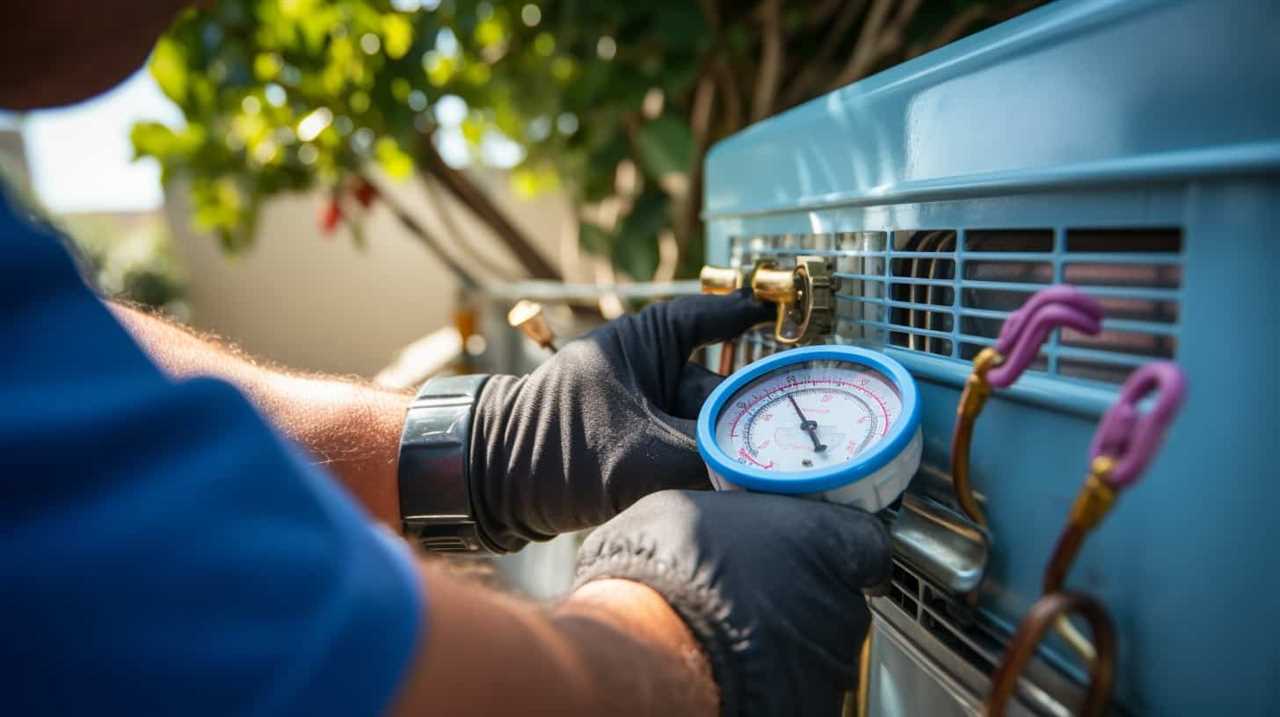
-
Air Filtration: Heat pumps are equipped with filters that capture dust, pollen, and other airborne particles, reducing the presence of allergens in the air we breathe.
-
Humidity Control: Heat pumps help maintain optimal humidity levels, preventing the growth of mold and mildew, which can trigger respiratory issues.
-
Ventilation: Heat pumps promote fresh air circulation by exchanging stale indoor air with filtered outdoor air, improving overall air quality.
-
No Combustion: Unlike traditional heating systems, heat pumps don’t burn fossil fuels, eliminating the release of harmful pollutants into the air.
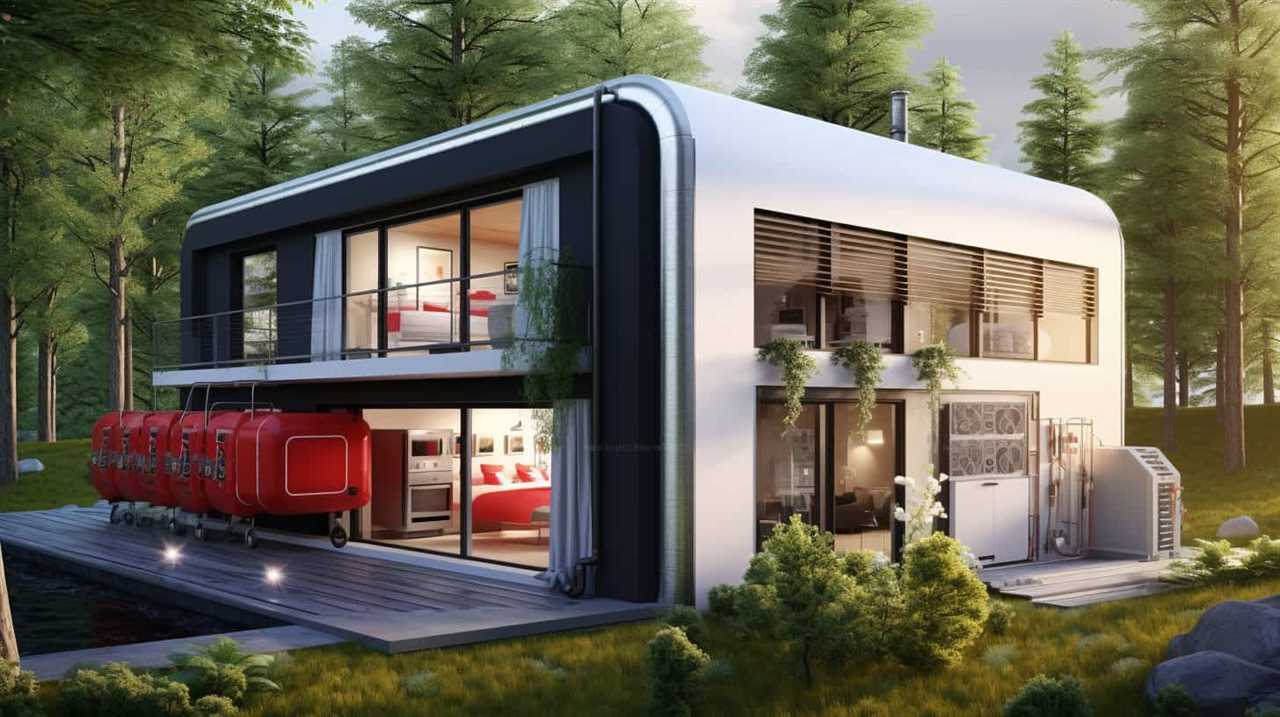
Frequently Asked Questions
Are Heat Pumps Suitable for All Types of Homes, Regardless of Size or Layout?
Heat pumps are a cost-effective solution for all types of homes, regardless of size or layout. They have a significant impact on energy bills, making them an ideal choice for eco-friendly living.
Can Heat Pumps Be Used in Conjunction With Other Heating Systems, Such as Boilers or Radiators?
Yes, heat pumps can be used in conjunction with other heating systems like boilers or radiators. By combining these systems, we can maximize efficiency and provide optimal heating solutions for different types of homes and layouts.
How Long Does It Typically Take to Recoup the Initial Investment of Installing a Heat Pump in Terms of Energy Savings?
How long does it typically take to recoup the initial investment of installing a heat pump in terms of energy savings? Factors such as climate, insulation, and usage patterns can affect heat pump efficiency and the time it takes to recoup the investment.
Are There Any Government Incentives or Rebates Available for Homeowners Who Choose to Install Heat Pumps?
Yes, there are government incentives and rebates available for homeowners who choose to install heat pumps. These incentives aim to promote energy savings and make eco-friendly home upgrades more affordable.

What Maintenance and Servicing Is Required for Heat Pumps and How Often Should It Be Done?
Heat pump maintenance and servicing are essential for optimal performance. Regular check-ups and cleanings ensure efficiency and prevent breakdowns. Our team recommends scheduling professional servicing twice a year to keep your heat pump running smoothly.
Conclusion
In conclusion, heat pumps offer a multitude of advantages for eco-friendly homes. From their exceptional energy efficiency to the cost savings they provide, these systems are a wise choice for any environmentally conscious homeowner.
With their versatility and flexibility, heat pumps can adapt to various heating and cooling needs, ensuring optimal comfort year-round. Moreover, by improving indoor air quality, these pumps contribute to a healthier living environment.
Embrace the power of heat pumps and join the sustainable revolution.
